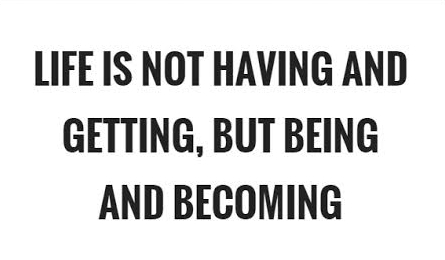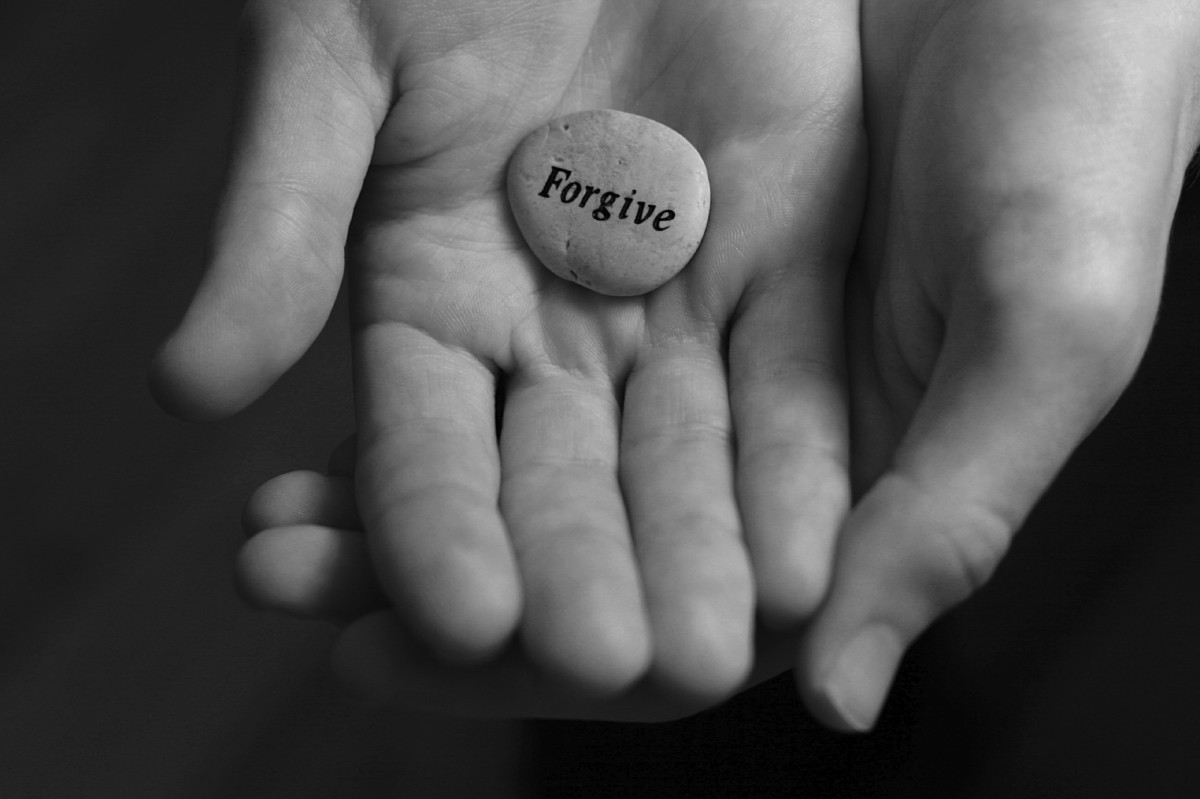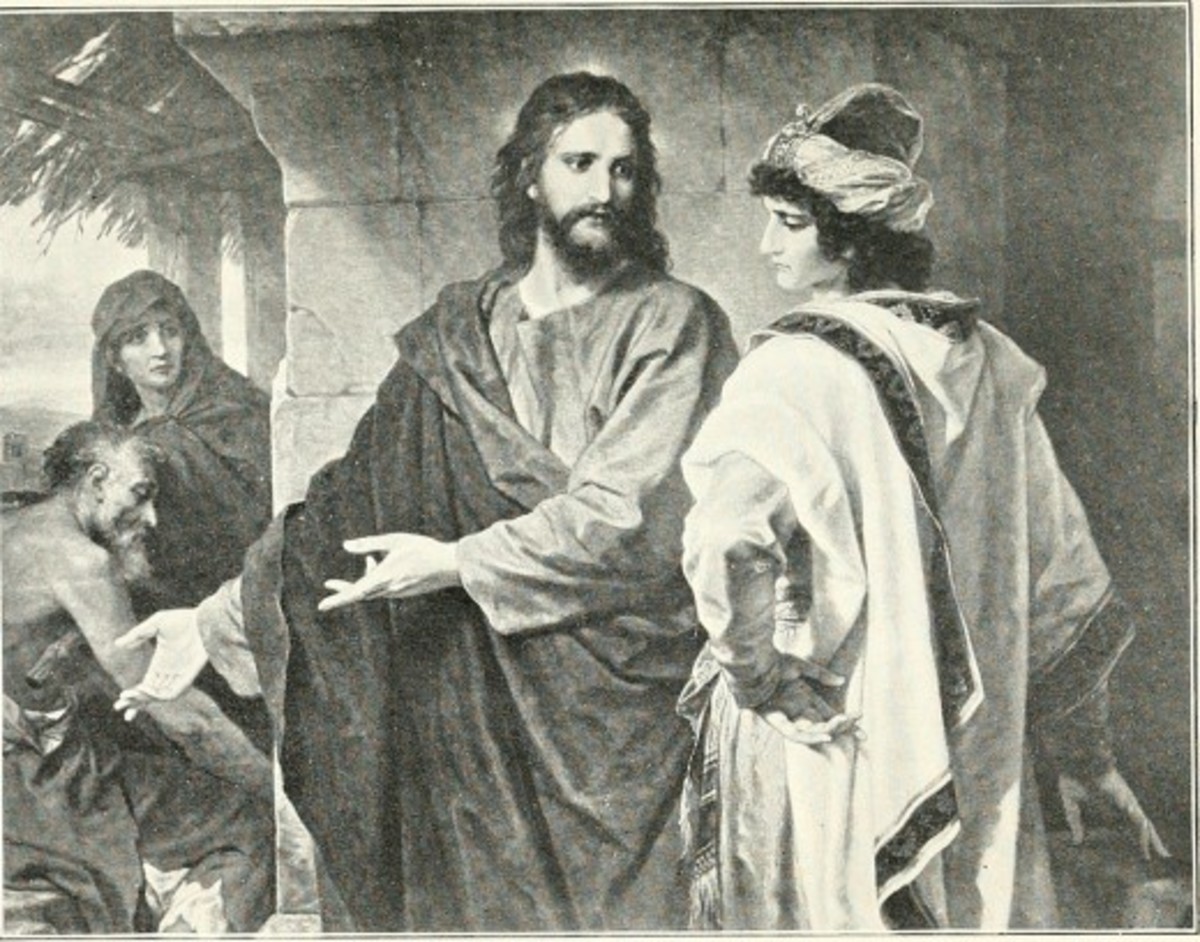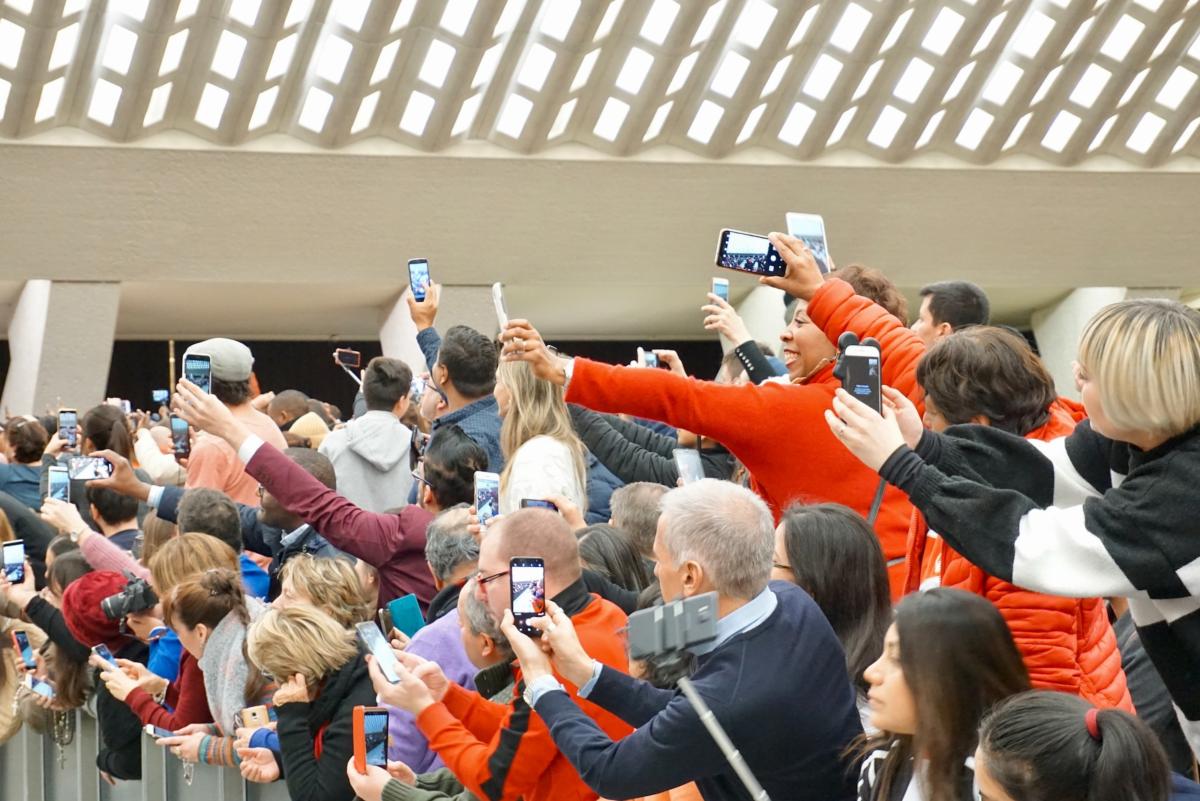Having and Being: People and Things

Wealth and Riches
The possession of wealth and riches and the uneven social order has cast a shadow on the human person and asks the question whether it renders him more or less free to live out his human vocation.
The quest for wealth and material possessions is a threat to the freedom of the human person to live according to the higher demands of love rather than to the lower appetite for material desires. When engrossed in the pool of materialism, the individual forgets the broader mission to reach out to others around him. Life is lived solely for one’s good and edification alone.
It is not wrong to want to live better, what is wrong is a style of life which is presumed to be better when it is directed towards “having” rather than “being”, and which wants to have more, not in order to be more but in order to spend life in enjoyment as an end in itself. It is therefore necessary to create lifestyle in which the quest for truth, beauty, goodness and communion with others for the sake of common growth are the factors which determine all that we do.
To “have” objects and goods does not in itself perfect the human subject, unless it contributes to the maturing and enrichment of that subject’s “being”, that is to say unless it contributes to the realization of the human vocation as such.

Having and Being
There are some people; the few who possess much, who do not really succeed in “being” because, through a reversal of the hierarchy of values, they are hindered by the cult of “having”; and there are others; the many who have little or nothing, who do not succeed in realizing their basic human vocation because they are deprived of essential goods.
The evil does not consist in “having” as such, but in possessing without regard for the quality and the ordered hierarchy of the goods one has. Quality and hierarchy arise from the subordination of goods and their availability to man’s “being” and his true vocation.
The danger of being obsessed with having too many goods leading to the spending of life in enjoyment as an end in itself led the Israelites to develop an egalitarian, decentralized society based on a federation between various tribes as against the stratified hierarchical structure of Canaanite society with a feudal economy strongly linked towards the benefit of the ruling class.
Today, capitalism is the dominant economy structure in most countries of the world. Capitalism is not bad in itself because it allows for the freedom the human person needs to exercise his creativity. In addition, capitalism encourages producers to be attentive to the needs of others namely, their customers, and to cooperate with others, in freedom and trust, in order to meet those needs in an efficient way. Capitalism encourages economic actors, as producers, to be of service to their neighbour. However the ills associated with previous dysfunctional societal structures are beginning to be seen in capitalism. Most appalling is the reduction of man to an object of material things by the consumer society.
Here, man as reduced to an object of material thing is based not on production but on consummation. The availability of goods and services leads to the immersing of the individual into the pool of material satisfaction. It is a life where the individual makes consumer goods the object of his heart’s desire and they become the source of his identity and the goal towards which his life is oriented.

People and Things
The possession of enough wealth and riches is not meant to be used solely to derive and pursue pleasure. The insatiable quest for material pleasure makes the individual an object that consumes solely for himself, rather than a subject who uses material goods in order to give himself to others.
However the human person is more than an object, he is a being created in the image and likeness of God, filled with potentials and the ability to actualize and transcend his person. The human person is a composite of body and spirit, having a destiny that transcend the physical world and invited to a higher way of life.
More so, man is essentially a social being. His interaction and relationship with others is central to achieving his essence and place in life. Thus, there should be nothing that makes him curl unto himself and see himself as the centre and sole of living. Even in the possession and use of material goods, man should give himself to other in relationship through giving and sharing of material wealth.
Man as a being is called to approach material possession not in the sense of “to have and to hold” but “to have and to flow.” Just as we have love and it flows on to others; just as we have peace and extend it to others; just as when we are happy we radiate the happiness to others, so too materials wealth should be allowed to flow through us to others in a loving relationship that seeks the good of others.
The style of life which is directed towards “having” rather than “being”, and which wants to have more, not in order to be more but in order to spend life in enjoyment as an end in itself can be said to be associated with the rich. However, it can also be found among the poor such that the poor driven by discontent and envy, may be consumed by what they do not have as the rich are consumed by what they have. The problem is not solely on having but on consuming, the desire for complete satisfaction in oneself and in material goods.

We can thus conclude that what needs to be addressed is basically the culture of “having over being.” The culture of consuming and satisfying ourselves with material goods without considering those around us is evil. When life is lived and defined solely on the acquisition of material wealth and comfort, we are moved to selfishness and greed. There is the need to build and restore authentic human relationship.
Thus, we need to probe the sphere of culture and specifically the relationship between authentic human freedom and possession of material goods. Human freedom is geared towards self-growth and actualization. Positivity should accompany our human freedom and possession of material wealth. Freedom always comes with responsibility. The freedom to own goods should go with the responsibility to channel them to the right and proper use. An authentic self will approach material good in the bid to enhance his authenticity and those of others.
Our motto should be: “person over things” and “being over having.”








